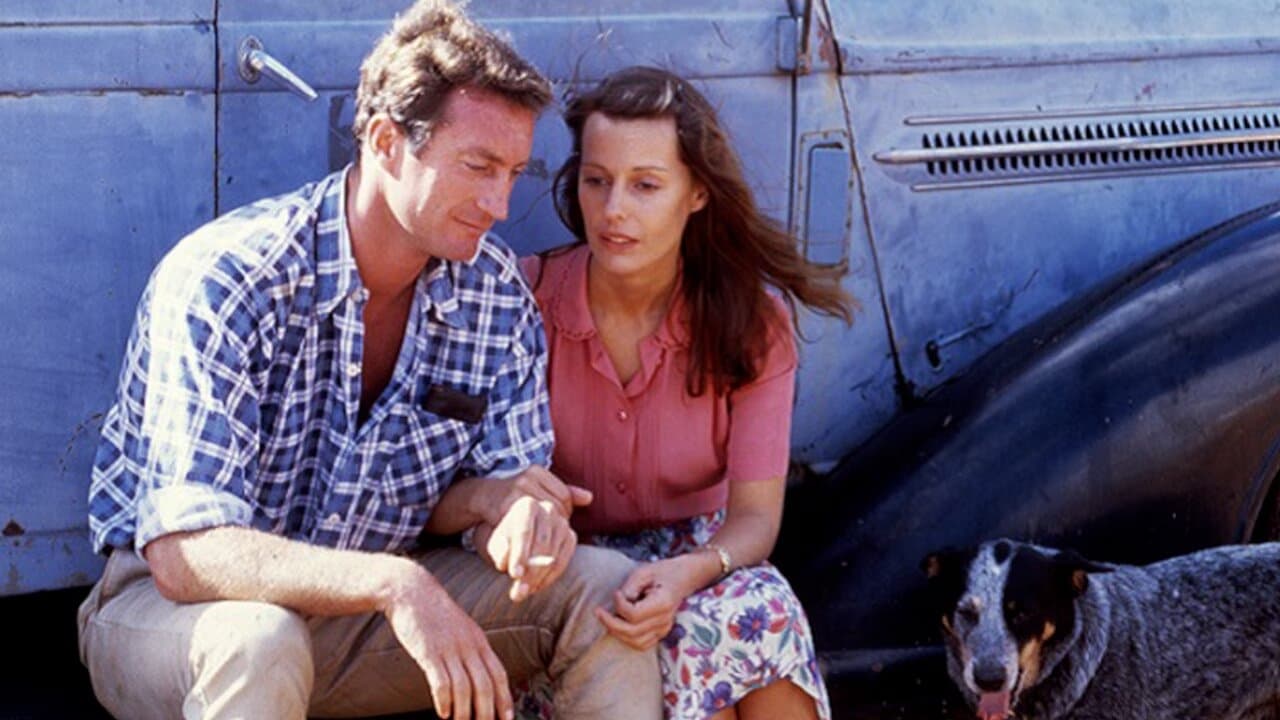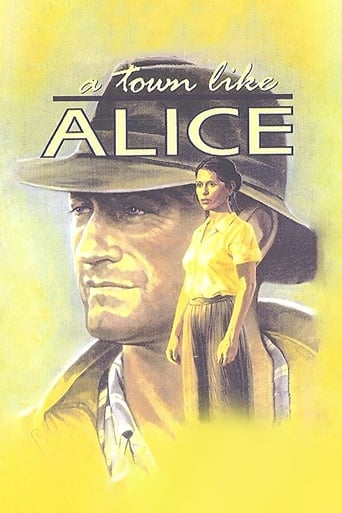

Henry Crawford and David Stevens' 1981 acclaimed mini-series improves on Jack Lee's 1956 studio shot film with nearly triple the amount of time given to more fully explore Nevil Shute's novel. Russel Boyd's photography (from Picnic at Hanging Rock to the newly released Master and Commander) as ever pays due respect to the exotic locations and the lush vegetation of Kuala Lumpur and the unrelenting landscape of Queensland. Paralleling closely with the `Tenko' TV series about a band of expatriate women taken prisoner by the Japanese in 1941 in Singapore this production was, not surprisingly, released in the same year. The saga's issues are further explored in the later Australian mini-series based on Noel Barber's tale of multi-cultural love in `Tanamera Lion of Singapore' (1988); Bruce Beresford's version of a Sumatran war-prison's female choir in `Paradise Road' (1999); and ABC's contentious `Changi' (2001) the musical (as envisioned by writer John Doyle and director Kate Woods), following the fortunes of six friends in the Singapore POW camp.In 1948 a young English woman receives an inheritance enabling her to repay a debt to the Malayan village where she survived her war years as a prisoner. Having dealt with the formal setting up of a trust fund for Jean Paget (Helen Morse) and the budding cross-generation friendship with her solicitor Noel Strachan (Gordon Jackson in typically kindly fatherly mode though without the edge of his sterner creations as Mr Hudson of `Upstairs, Downstairs' and governor George Cowley in `The Professionals') the film switches back to events in 1941 as the Japanese invade Malaya. A band of women are forced to march on the pretext of catching a train to Singapore for the nearest prison, though it soon becomes apparent that the motley captives are a very unwelcome nuisance for the Japanese. The rigours of the journey are too much for some of the women and children, and lacking any medication dysentery takes its toll on the rest. Their saviour eventually turns up in the guise of an Australian mechanic, Joe Harman (Bryan Brown), who purloins medicines and food for them and soon an obvious attraction and deep bond is formed between him and Jean. However Joe's kindness and risk taking eventually goes too far and delivers him into the vengeful hands of the camp commandant for stealing his chickens. A bloody retribution is exacted on Joe who is literally crucified in front of the women he sought to help, a thoroughly believable example, and not without precedent, of the atrocities inflicted on prisoners in this barbaric world. Mrs Frith (Dorothy Alison), whose mind is severely strained by the trauma, rather labours the corollary of a saviour who heals with medicines but is crucified for his pains. Echoes of the Canadian sergeant crucified by German soldiers around Easter in April 1915 resonate here, as well as the fictional storyline of a Russian style crucifixion in an episode of this year's `Spooks' for the BBC. November 2002 also provided further humanitarian outrages as a Catholic car thief in Belfast was nailed to a fence and beaten, and an angry Cambodian mother in Phnom Penh nailed her 13-year-old daughter's foot to the bamboo floor of their home because she had neglected her household chores.Without further ceremony the women are dismissed along with an elderly guard for minder, who expires soon after the women have sought shelter in a village, that is to become their resting place for the remainder of the war and the reason for Jean's eventual return. During her revisit to Malaya, Jean ecstatically discovers that for the want of a cold beer Joe miraculously cheated death, and impetuously she sets off for Australia in search of his cattle station. In one of life's extraordinary twists Joe turns up at Strachan's office in London who gently tries to put him off the trail; however these star-crossed lovers are destined to meet up with each other in spite of the interference by well-wishers. In the interim Jean discovers her mission to build a town like Alice Springs in the dusty backwater of Willstown that passes as the closest thing to civilisation and her lover's home. With her mixture of determination and quiet strength Jean battles to overcome the mistrust and apathy of the locals as well as theirs and Joe's inherent chauvinism. Continued in Part II
... View MoreThis review contains what might be a spoiler if you never read the book or saw the cover of the video box. So if you want to approach the movie not knowing anything about it, except that I like it a lot, stop here... The production values are not first rate, but the acting between the leads is, and they give the romance between them more life than Shute does in his novel (although I generally prefer the novel). My very faint objections to the film as opposed to the book is that the film dumbs-down some of the relationships with secondary characters, and between the lead characters in a scene toward the end of the film, to provide for some not at all realistic dramatic tension and as a general plot device. All this is handled much better in the book, with the result that I find the end of the book quite a bit more touching than the end of the movie.
... View MoreI first saw the series on Msterpiece Theater on PBS in weekly hourly installments tgat went for about 14 or 15 weeks in the 70's. If there was a movie from that, that's too bad because the entire series had to be viewed in its entirety with the detail that 14 or 15 hors of plot give. The theatrical movie version that was done in the 50's with Peter Finch doesn't do justice to the story. The plot divided into two parts...1)the World War II agony of the trek through the jungle and stay in a prisoner of war camp and 2) the relationship that develops in the Outback of Australia. One of the most vibrant scenes I recall was the character Paget being elated that Harmon was, in fact alive, skipping and jumping for joy down the beach after having thought he died years previously. Wonderfully filmed throughout the series.
... View MoreA TOWN LIKE ALICE first captivated me when I was only 14 and caught a re-run of it on T.V. in 1984. It has since remained one of my most favorite romances on film. It is a modest, understated and "un-Hollywood" (thank God!) work, yet it is epic in the way it depicts the two very likable main characters, Joe Harmon and Jean Paget (played by Bryan Brown and Helen Morse, respectively) meeting during a tumultuous backdrop of war and despair, falling in love in spite of it, and then becoming blissfully reunited. But don't worry--I haven't given away the "happy ending!" The last half of the film that follows is what gives this work its integrity. The lovers then have to overcome the adversity of the differences of their cultures and beliefs--her being English and he being Australian. Jean Paget is an admirable, headstrong character, who when placed in the backwards Australian outback of the 1940's, is put to the test with her lover Joe, making one realize that love relationships don't go perfectly, but if the love is strong, it will persevere.This movie truly pulls the viewer into the romance between Jean and Joe and you feel every heartache and every joy that they share in your heart as well. But these are not shallowly constructed "romance novel characters." They are complex and imperfect and through their hardships, show the audience that any love such as theirs is truly worth fighting for.So, as long as this movie is on tape (being a two- part mini-series), please be patient with it (like you would with an E.M. Forster novel-to-film adaptation) because I guarantee the reward will be ever so sweet. It will draw you in and be compelling from start to finish with a story you will really care about. A wonderful, wonderful picture! Plus, the soundtrack is absolutely gorgeous and moving.
... View More